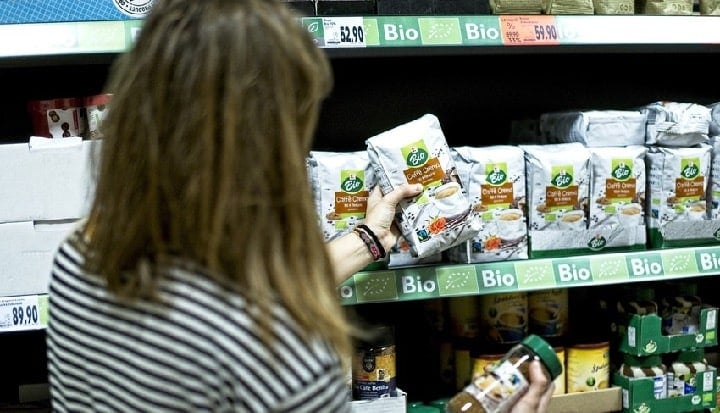Encouraging news for those of us who believe value can’t always be measured by price: consumers all over the world are staying loyal to Fairtrade as the most visible and trusted ethical label, despite the cost of living crisis.
Research in 12 countries by GlobeScan for Fairtrade suggests rising food prices haven’t deterred the majority of shoppers from paying a bit more for a Fairtrade product. Many people still put ethical considerations high on their list when they go to the supermarket. Here are five good reasons why.
- Despite recent indications of an overall dip in consumers’ willingness to choose ‘purposeful’ brands, Fairtrade appears to be bucking the trend when it comes to ethical shopping choices, with more people saying they regularly buy Fairtrade products than the last survey in 2021. Forty-four percent buy at least one Fairtrade product per month, up three percentage points from two years ago.
- Close to three in five (56 percent) of shoppers surveyed in 12 countries said they were willing to pay more for a Fairtrade product, despite the increased cost of living. Among the reasons listed were Fairtrade’s strong association with social justice issues such as decent working conditions, protecting farmers’ and workers’ rights, and tackling poverty. 75 percent – including four out of five parents – said the Fairtrade label makes it easy for them to decide if a product is ethically and responsibly produced.
- Fairtrade remains the most visible and trusted ethical label globally, with the majority of consumers telling us they prefer to buy Fairtrade products over other labels. Shoppers overwhelmingly see added value for brands that carry the Fairtrade label. Seventy-nine percent stated they have a positive impression of a brand when the Fairtrade label is present, while 43 percent said their view of a brand would be negatively impacted if it stopped carrying the label.
- Three-quarters of Gen Z, Millennials and Gen X surveyed said they trusted the Fairtrade label, and younger consumers (those aged 25-34) were the most likely to be willing pay more than regular price for Fairtrade products despite the increased cost of living.
- Environmental and sustainability considerations are increasingly important. More than one in five shoppers associate Fairtrade with support for farmers to reduce the impact of climate change, reduce the impact of farming on the environment, and protect against deforestation (22 percent each), reflecting greater awareness of Fairtrade’s actions in these areas of sustainability.
I’m encouraged that shoppers are staying committed to sustainability values even during hard times, to support farmers and workers getting a fair income. The global cost of living crisis is squeezing both consumers and producers, but this survey shows that many people still put ethical considerations high on the list when they go shopping.
Research shows increasing concern about climate change and poverty, and people want to have those big concerns reflected in the products they buy. Certifications such as Fairtrade continue to be critical to help consumers shop with their values. That’s got to be good news for farmers, farm workers and consumers.










